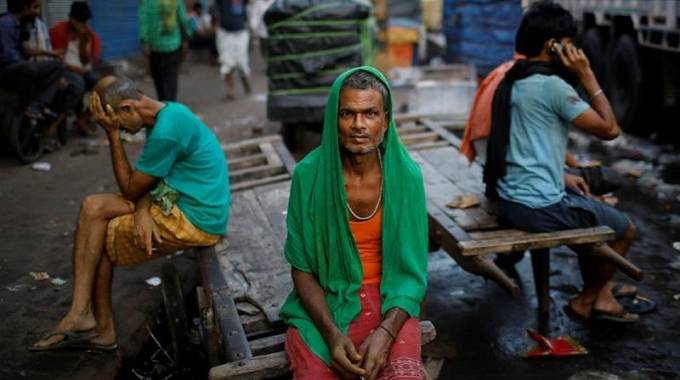Covid-19 job losses emasculate men

Andile Tshuma
Job loss is never really easy for anyone and can be quite an extremely stressful life event that which could make one think that the world is crashing down and everything is falling apart.
Along with job loss comes along the strong stigma attached to unemployment, so whenever one happens to be out of work, they may experience a big blow to confidence and harbour a strong feeling of having been rendered useless.
However, men and women don’t necessarily experience job loss in the same way. It often seems that, for many men, job loss is acutely painful because it threatens their masculinity, their identity, and an essential component of their self-esteem. The reality of joblessness has been under the spotlight now as it is worsened by the Covid-19 pandemic which has brought about the inevitable closure of so many industries not deemed as critical.
For those who earn by the hour, and other contract workers, not reporting for work means nothing is earned. Imagine what a seven-week lockdown has done to that kind of worker. The Covid-19 pandemic has not only brought the horror of sickness and the loss of loved ones.
Due to the nature of the virus, prolonged lockdowns have had to be implemented, and some industries may not be able to avoid the inevitable, they will shut down and fail to reopen in the post Covid-19 era.
The impact of the Covid-19 pandemic is not gender neutral. It has and continues to affect men and women differently.
Gender responses to the pandemic must therefore not be blind to the individual needs for the different genders in society.
In Zimbabwe men and women have been adversely affected by the Covid-19 pandemic. However, in this edition we focus on how men are particularly affected in this status quo. The majority of men who have been affected are those in informal employment. Vendors, cross-border traders, omalayitsha and many more are adversely affected by the prevailing situation.
When a man loses his job, he loses more than just the paycheck.
Borders are closed, our brothers, uncles and friends who have earned a living though transportation and delivery of goods from across South Africa to every corner of Zimbabwe are in quandary. They are out of work and nobody knows for how long, as it is unknown when borders will reopen and when normalcy will return.
Due to socialisation and the existing gender roles that have been assigned, men are still seen as having the mandate to carry the burden of being the provider for families.
Some families are moving on from this and it is common to find a couple both working and contributing to the sustenance of the household, however families where men are the sole breadwinners for their household are still very common.
Job loss in such scenarios is devastating to the whole household that looks up to the man top provide. The man is more affected by the thought or idea of “having” failed to bring the bread as the breadwinner and the issue ceases to be just a bread and butter issue, it affects mental health as stress and depression may creep in. Also the uncertainty of how this situation will end may bring about worse stress.
Another group that has been greatly affected is the local transport industry, especially in towns and cities. This workforce of this industry is mostly made up of men. Men who have families, responsibilities and many financial obligations that they must meet.
The taxi industry in Bulawayo employs thousands of men, taking care of tens of thousands of families, factoring in the extended family. Due to the Covid-19 lockdown regulations currently in place, the taxi industry remains suspended and this means that many families are being deprived of their livelihoods, so many men are unable to work and fend for families.
Thoughts may quickly turn to the driver, the conductor and the vehicle owner, however, the industry also in an extension employs rank marshals, mobile car wash boys, vendors who take advantage of the high human traffic volumes at taxi ranks and so many more people.
Being a provider one day, not rich but able to take care of your family, and then being unemployed and penniless a couple of days later is not easy.
Even before the Covid-19 situation, men have been robbed of their traditional roles as providers, protectors and even pro-creators. The heavy muscular jobs of working with machinery in heavy industries, digging trenches and banging metal from which men derived an assertive productive masculinity have disappeared.
Men have been emasculated by the loss of traditional functions and jobs as the effects of economic downturn currently being experienced globally become pronounced in Zimbabwe. The fear is that the Covid-19 pandemic may exacerbate the situation as some industries may fail to survive the ongoing onslaught of the virus.
Regardless of the reason for job loss, when men find themselves unemployed, it can signal such a catastrophic moment in their lives that it triggers an episode of depression.
If you know anyone who has lost their job in this time. Be there for them, show that you care.
In the next edition we will talk about women and Covid-19 job losses as women are also a constituency that has been affected by the Covid-19 situation. − @andile_tshuma











Comments